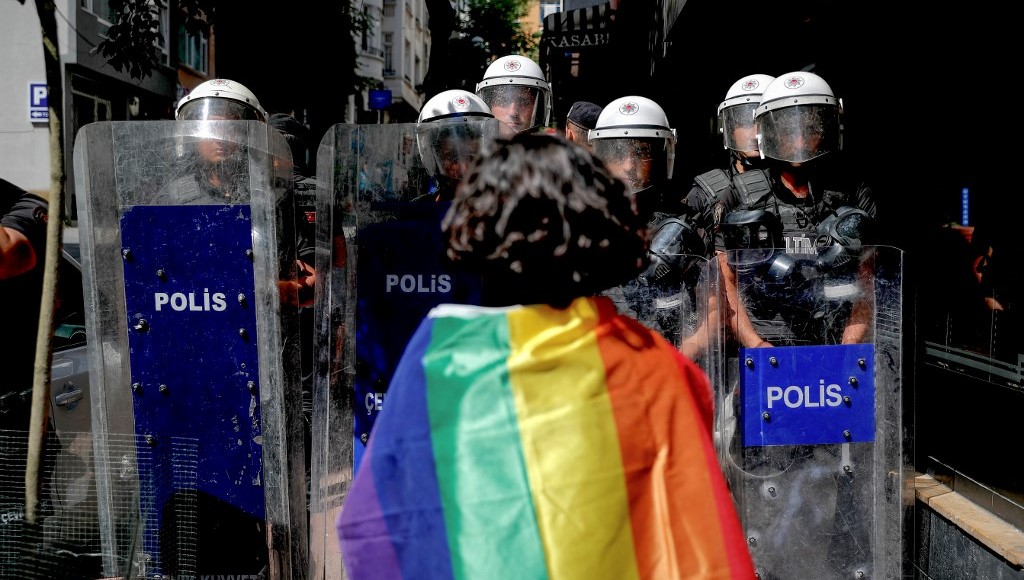Turkey’s Justice Ministry is proposing sweeping legal changes that would restrict gender transition procedures and criminalize public expression of LGBTQ+ identity, according to a draft bill obtained by Kaos GL, one of the oldest LGBTI+ rights groups in Turkey.
The proposal, developed under the ministry’s Fourth Judicial Reform Strategy as part of the government’s “Year of the Family” initiative for 2025, aims to amend Turkey’s Civil Code and Penal Code, incorporating the term “biological sex” into the latter.
If enacted, the law will raise the minimum age for gender transition from 18 to 21 and require individuals to provide extensive medical documentation proving they are “permanently infertile” and that gender transition is “medically necessary.” The process will involve assessments conducted over a year at state-designated hospitals.
The bill also criminalizes public displays of LGBTQ+ identity under the penal code’s “public obscenity” article. A proposed provision states that anyone “who publicly promotes, praises, or encourages behaviors contrary to biological sex and general morality” will be sentenced to from one to three years in prison, with another clause imposing up to four years for same-sex engagement ceremonies or symbolic weddings.
lawyer Kerem Dikmen, Kaos GL’s human rights program coordinator, criticized the proposed changes, arguing that they would roll back legal recognition for transgender people.
“Under these changes, a transgender person whose legal gender has not yet been recognized, or someone defying traditional gender norms through clothing, speech or self-expression, could be prosecuted,” he said.
The bill also seeks to reinstate a legal provision that Turkey’s Constitutional Court struck down in 2017. The previous law required individuals seeking gender transition to prove they were permanently infertile.
Dikmen argued that LGBTQ+ rights organizations could face legal prosecution for “publicly encouraging attitudes and behaviors contrary to biological sex.” This would extend to leaders and staff of organizations advocating for gender expression and freedom of speech as well as journalists who interview individuals with unrecognized gender identities and help make them visible.
Although homosexuality has been legal throughout modern Turkey’s history, gay people regularly face harassment and abuse.
The proposed changes reflect recent rhetoric from President Recep Tayyip Erdoğan and his government, which have portrayed LGBTQ+ identity as a threat to traditional family values. The LGBTQ+ community, which is increasingly marginalized in Turkey, has been a key target in Erdoğan’s speeches. Pride parades have been banned since 2015, and state-sponsored anti-LGBTQ+ rallies have become more frequent. The Religious Affairs Directorate has also used Friday sermons to label LGBTQ+ movements as attempts to “erase the natural essence of men and women.”
If passed, the bill would mark one of the most significant legal setbacks for LGBTQ+ rights in Turkey in years.



